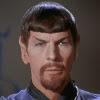59%of U.S. voters agreed with Ronald Reagan that “government is not the solution to our problem; government is the problem.” ... Only 28% disagree, and 14% are not sure.
Middle class people are with us:
Middle-income voters are more likely to agree with Reagan than those who earn less than $20,000 or more than $100,000.
When looking for help from non-libertarians, we're much more likely to get support from conservatives than liberals, who basically love big government:
Political liberals strongly reject Reagan’s view by a 60% to 28% margin. Forty-seven percent (47%) of moderates agree, while 32% do not. Conservatives are overwhelmingly supportive.
Also interesting:
Although the Republican Party in Washington veered away from Reagan’s approach in the years since the 40th president left office, 83% of Republican voters around the country still agree with him. So do 40% of Democrats and 60% of those not affiliated with either major party.
See the full story for more interesting data. But libertarians should stop being mean to conservatives. They believe in freedom, while liberals do not.

